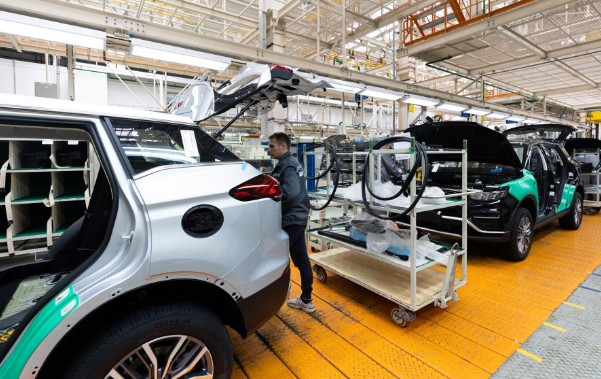INTERNATIONAL: Global car manufacturers, including industry titans from Germany, India, and Japan, upstretched red flags this week over China’s intensifying control on rare earth mineral exports. According to the latest Reuters report, the restrictions, which now cover rare earth alloys, concoctions, and magnets essential to electric vehicles (EVs) and other advanced manufacturing, have sent tremors through global supply chains.
German auto makers joined the clamour on Tuesday, warning of impending production interruptions and economic distraction if the circumstances aren’t resolved quickly.
“If the situation is not changed quickly, production delays and even production outages can no longer be ruled out,” said Hildegard Mueller, president of Germany’s automotive industry association. The same apprehensions were brought up earlier by Indian EV maker Bajaj Auto, stressing the international scale of the consequence.
China’s mineral move seen as trade leverage
The export restrictions, which came out in April, are generally seen as part of China’s tactical play in its continuing trade conflict with the U.S. Under former President Donald Trump, the U.S. levied antagonistic tariffs on Chinese products to rearrange the economic equilibrium. China’s reaction, blocking a resource stream central to sectors from automotive to defence, highlights Beijing’s influence in the international essential mineral market.
Trump, who is purportedly formulating a new round of trade meetings with Chinese President Xi Jinping, has accused China of breaching international trade standards. “The administration is actively monitoring China’s compliance with the Geneva trade agreement,” said White House spokesperson Karoline Leavitt on Tuesday.
Export bottlenecks disrupt global supply chains
Since April, deliveries of rare earth magnets have been stuck at Chinese harbours. The interruptions, ascribed to sluggish licensing procedures, have kindled apprehension in capitals from Tokyo to Washington.
Attempts are now on track to alleviate the impasse. Emissaries and influential businessmen from the European Union, Japan, and India have appealed for emergency consultations with the Chinese people in power. Japan is sending a business team to Beijing in early June, and India is preparing for a similar visit for car officials within the coming weeks.
Automakers urge Washington to act
Prominent auto manufacturers, such as General Motors, Volkswagen, Toyota, and Hyundai, recently requested that the U.S. government caution that the scarcity of rare earth magnets could weaken, if not paralyse, their capacity to produce vital equipment.
In a letter to U.S. trade bureaucrats, the Alliance for Automotive Innovation wrote, “Without reliable access to these elements and magnets, automotive suppliers will be unable to produce critical automotive components,” alluding to everything from transmissions and radars to power navigation systems and onboard microchip technology.
Frank Fannon, an ex-U.S. State Department official and minerals advisor, cautioned that the predicament has been long in the making. “We have a production challenge in the U.S.,” Fannon said. “The time horizon to fix this was yesterday.”

